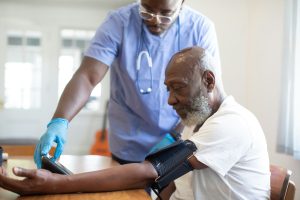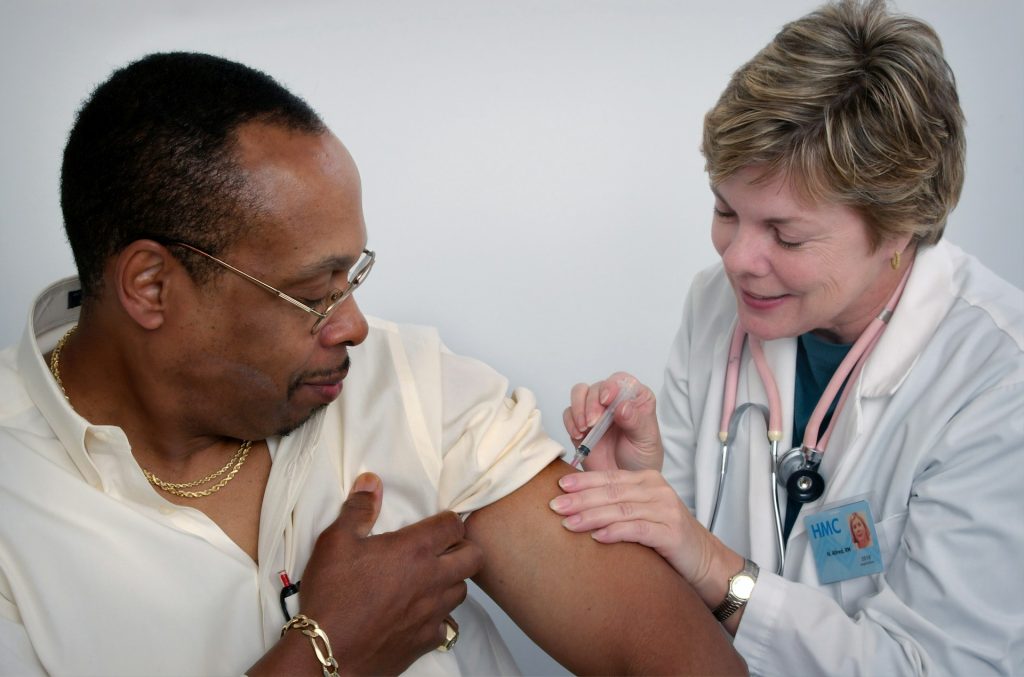 Public health jobs sit at the intersection of data, prevention, policy, and community impact. Whether you’re quantifying an outbreak, running a vaccination campaign, modeling asthma hotspots, or modernizing a county health department’s operations, the field offers a mix of mission and stability—with roles ranging from entry‑level outreach to doctoral‑level analytics and leadership.
Public health jobs sit at the intersection of data, prevention, policy, and community impact. Whether you’re quantifying an outbreak, running a vaccination campaign, modeling asthma hotspots, or modernizing a county health department’s operations, the field offers a mix of mission and stability—with roles ranging from entry‑level outreach to doctoral‑level analytics and leadership.
This guide breaks down the major job families, what they pay, growth outlooks, where the jobs cluster, how to qualify (degrees, certifications), and how to get hired. Use it as a playbook: pick your lane, assemble the credentials that matter, and build a portfolio that proves impact.
Read Also: Best Jobs in the USA (2025 Guide)
What Counts as a “Public Health” Job?
Think of public health as population‑level health and the systems that protect it. Key job families include:
- Epidemiology & Surveillance — disease detectives who design studies, analyze trends, and guide interventions.
- Biostatistics & Data Science — statistical modeling, study design, dashboards, and analytics across programs.
- Health Education & Community Health — outreach, program delivery, and behavior‑change campaigns.
- Environmental & Occupational Health — air/water/food safety, vectors, housing, workplace hazards.
- Emergency Preparedness — planning, exercises, incident command, and response.
- Public Health Nursing — community clinics, maternal–child health, immunizations, case management.
- Health Policy & Management — program management, grants/contracts, health services administration.
- Global Health & NGOs — implementation science, monitoring & evaluation (M&E), and multi‑country programs.
Where you’ll work: state/local health departments, tribal health, federal agencies (CDC, HRSA, FDA, NIH), hospitals & health systems, nonprofits/NGOs, universities & research centers, consultancies, and health tech.
Read Also:Hobby Lobby Jobs in the USA (2025 Guide)
Salary & Outlook for Public Health Jobs: What You Can Expect
 Pay varies by degree, credential, sector, and city. Directionally, here’s how common roles stack up in 2025 (use the search plan in Section 9 to fine‑tune for your metro):
Pay varies by degree, credential, sector, and city. Directionally, here’s how common roles stack up in 2025 (use the search plan in Section 9 to fine‑tune for your metro):
Epidemiologist
- Typical range: $70k–$110k; leadership posts higher.
- Hiring settings: state/local health departments, hospitals, CDC contractors, academia.
- What moves pay: SAS/R fluency, study design, outbreak investigation, and publication/IRB experience.
Biostatistician / Public Health Data Scientist (Statisticians)
- Typical range: $90k–$140k depending on degree/specialty.
- Hiring settings: health systems, research institutes, pharma/biotech, public agencies.
- What moves pay: advanced modeling, clinical trials, causal inference, geospatial/epi analytics, and reproducible pipelines (R/Python/SQL).
Health Education Specialist / Community Health Worker
- Typical range: $45k–$75k (higher in hospital systems and grant‑funded lead roles).
- Hiring settings: health departments, FQHCs, hospital community benefit, NGOs.
- What moves pay: bilingual skills, CHES/MCHES credential, program management, and grant reporting.
Environmental Health Specialist / Sanitarian (REHS/RS)
- Typical range: $55k–$95k; senior/managerial roles higher.
- Hiring settings: county/state environmental health, water authorities, consulting, industry (food, manufacturing).
- What moves pay: REHS/RS, specialized programs (onsite wastewater, pool/spa, vector control), and enforcement experience.
Medical & Health Services Manager (Public Health Programs)
- Typical range: $95k–$160k+, with bonuses in hospital/health system roles.
- Hiring settings: health departments, hospitals, community health centers, NGOs.
- What moves pay: scope (budgets/headcount), grants portfolio, quality/outcomes, and compliance.
Emergency Preparedness Coordinator/Manager
- Typical range: $65k–$110k (significant locality variance).
- Hiring settings: health departments, hospitals, regional coalitions, and universities.
- What moves pay: ICS training, exercise design, hospital coalition experience, and incident responses logged.
Read Also: Hobby Lobby Jobs in the USA (2025 Guide)
Job Families: What You Do Day‑to‑Day & How to Qualify
A) Epidemiology & Surveillance
What you do: Analyze surveillance data, design cohort/case‑control studies, run outbreak investigations, build dashboards, and translate findings into policy memos.
Skills & tools: Study design, R/SAS, SQL, data management, GIS, data visualization, causal inference basics, scientific writing.
Credentials: MPH/MS (epi/biostats) is common; CPH credential is a plus; outbreak field experience helps (e.g., EIS‑style fellowships, applied epi roles, or hospital infection prevention partnering).
Interview proof: A short write‑up of an analysis you led (question → data → model → limitations → recommendation), code samples, and a dashboard screenshot.
Read Also: How to Prepare For Job Interview When Changing Careers in US
B) Biostatistics & Public Health Data Science
What you do: Design analyses for trials and observational studies, build and validate models, publish methods, and consult with program teams on study power and bias mitigation.
Skills & tools: R/Python, statistical inference, GLMs, survival analysis, mixed models, causal inference/propensity, reproducible workflows, Git, compute in cloud or HPC.
Credentials: MSc/PhD typical; internships or RAships help; domain experience (infectious disease, chronic disease, maternal–child health) is valued.
Interview proof: Reproducible code repo (with README), a methods memo, and an example of translating results for non‑technical audiences.
C) Health Education & Community Health
What you do: Plan and deliver education programs, recruit participants, coordinate screenings and vaccinations, and track outcomes for grants.
Skills & tools: Curriculum design, motivational interviewing, cultural competence, event logistics, CRM or case‑management tools.
Credentials: Bachelor’s in health education/public health plus CHES (or MCHES) is valued. Community health workers often have targeted certificates; bilingual capability is a premium.
Interview proof: A program plan (objectives, materials, outreach channels), outcome metrics, and a sample logic model.
D) Environmental & Occupational Health
What you do: Inspect restaurants, housing, pools, wells; enforce codes; test water/air; investigate complaints; educate owners; coordinate abatement; emergency response for spills or outbreaks.
Skills & tools: Sampling, chain‑of‑custody documentation, risk communication, code knowledge, GIS, report writing.
Credentials: Bachelor’s (often environmental health); REHS/RS credential is widely recognized; some states require it within a set window.
Interview proof: An inspection checklist you improved, a trend analysis of violations, and a public notice or risk communication you drafted.
E) Public Health Nursing
What you do: Immunization clinics, maternal–child home visiting, communicable disease case management, school health, STI clinics, chronic disease coaching.
Skills & tools: RN license, population health protocols, EMR documentation, vaccination workflows, case management.
Credentials: RN/BSN; PHN designation in some states; immunization (VFC) and case‑management training.
Interview proof: Clinic throughput improvements, vaccination rates, case‑closure timeliness, and outreach coverage maps.
F) Health Policy & Management
What you do: Manage grants, budgets, and programs; write RFPs; oversee contracts and vendor performance; liaise with finance and legal; set KPIs for programs.
Skills & tools: Budgeting, procurement, performance measurement, grant writing/reporting, stakeholder management, dashboards.
Credentials: MPH/MHA/MPA; CPH valued; Lean/Six Sigma or project management training helps.
Interview proof: A budget tracker, KPI dashboard, one grant narrative section, and a vendor performance scorecard you use.
G) Emergency Preparedness & Response
What you do: Hazard vulnerability assessments, response plans, training exercises, coalition coordination, and incident command when needed.
Skills & tools: ICS/NIMS, exercise design, after‑action reporting, WebEOC or similar platforms, logistics.
Credentials: FEMA ICS 100/200/700/800; advanced ICS for leaders; healthcare coalition experience; EM certs (EMCP) are a plus.
Interview proof: An after‑action report with improvement plan items you closed and a resource‑request workflow you streamlined.
Read Also: Financial Analyst Jobs in the USA
Degrees, Certifications & Licensure You’ll See in Postings
- MPH/MS/DrPH/PhD: Epidemiology, biostatistics, environmental health, health policy/management, global health, MCH.
- CHES/MCHES (NCHEC): Signals formal training in health education; useful for health educator roles and grants.
- CPH (NBPHE): Broad public health knowledge credential; a differentiator for many agency roles and leadership tracks.
- REHS/RS (NEHA): Environmental health specialist credential; widely required or preferred for inspections and code enforcement.
- RN/PHN: For public health nursing.
- ICS/NIMS: For preparedness roles in health departments and hospitals.
Pro tip: Many health departments reimburse exam fees and continuing education—ask during interviews.
Read Also: Cybersecurity Jobs in the USA Hiring Entry-Level
Where the Public Health Jobs Cluster (Geography & Employers)
State & local health departments (every state; big metros have multiple divisions).
Hospital & health systems (infection prevention, community benefit, population health, quality).
Federal (CDC, HRSA, FDA, NIH; also contractors supporting these agencies).
Universities (schools of public health; institutes; clinical research centers).
FQHCs & community clinics (outreach, case management, data reporting).
NGOs & foundations (programs, evaluation, policy, advocacy).
Consulting & health tech (analytics, implementation, M&E, data platforms).
Hot regions: major metros (NYC, DC/MD/VA, Boston, Chicago, Atlanta, Houston, LA), state capitals (policy/program hiring), and university towns with schools of public health. Rural health departments hire consistently for generalist roles (great for early‑career breadth).
Read Also: Operations Manager Jobs in the USA (2025 Guide)
Get Hired: Search Plan, Résumé Bullets & Interview Prep
A) Title Variants & Boolean Strings
Search broadly—titles vary by agency.
- Epidemiology: (epidemiologist OR surveillance OR infectious disease analyst) (R OR SAS OR SQL) (MPH OR MS OR CPH)
- Biostat/Data: (biostatistician OR “public health data” OR data scientist) (R OR Python OR “clinical trials” OR causal) (MPH OR MS OR PhD)
- Health Education/CHW: (“health education specialist” OR CHES OR “health educator” OR “community health worker”) (bilingual OR outreach OR curriculum)
- Environmental Health: (“environmental health specialist” OR sanitarian OR REHS OR RS) (inspection OR enforcement OR food OR water)
- Policy/Management: (“public health program manager” OR “grants manager” OR “population health manager”) (budget OR KPI OR grant*)
- Preparedness: (“emergency preparedness” OR HVA OR ICS OR coalition) (WebEOC OR exercise)
B) Résumé Bullets that Prove Impact
Replace duties with outcomes and measures.
- Epidemiology: “Built R pipeline for notifiable disease; reduced reporting lag 41% and flagged 3 clusters within 48 hours.”
- Biostatistics: “Designed and analyzed RCT (n=640); 30% reduction in primary endpoint; authored methods section and reproducible code.”
- Health Education: “Delivered diabetes workshops to 320 participants; A1C −0.6 avg at 3 months; bilingual materials increased attendance +35%.”
- Environmental Health: “Inspected 450 food facilities; critical violations −22% YoY via targeted education and follow‑ups.”
- Policy/Management: “Managed $6.2M in grants; on‑time reports 100%; launched KPI dashboard for 12 programs.”
- Preparedness: “Led full‑scale exercise; closed 9/11 improvement items in 60 days; updated HVA and resource caches.”
C) Interview Assets
Bring: a portfolio (2–3 redacted work samples), dashboard screenshots, a logic model or A3, and one short case study (problem → analysis → decision → result). Practice communicating to non‑technical audiences.
Read Also: Staffing Agencies in the USA: A Practical Guide for 2025
Early‑Career Entry Paths for Public Health Jobs (No MPH Yet?)
- Community Health Worker / Health Educator I: start in outreach, navigation, or program assistant roles; earn CHW certificate or CHES; ladder into coordinator/manager.
- Data Technician / Analyst I: if you’ve got SQL/Excel/R basics, support surveillance or registry teams; grow into epidemiology or biostatistics with tuition assistance.
- Environmental Health Trainee: join a county as a trainee while completing science credits toward REHS eligibility.
- Program Assistant / Grants Coordinator: run calendars, vendors, budgets; learn compliance; grow into program manager.
- AmeriCorps/Service Fellowships: gain field experience and references while sampling different divisions.
Funding tip: Many employers (especially health systems and government) offer tuition reimbursement; pair work with an MPH/MS to accelerate into analyst/manager roles.
Read Also: USA Jobs That Hire at 14 (2025 Guide)
Funding, Grants & The Hiring Cycle for Public Health Jobs (Why Timing Matters)
Public health jobs often follow grant cycles (state/federal fiscal years) and budget approvals. Watch for:
- Federal grants via CDC/HRSA and state pass‑through funds; positions often open shortly after awards are announced.
- Coalition and hospital community‑benefit funding for outreach and prevention programs.
- Seasonality for preparedness and immunization campaigns (late summer/fall).
Build a calendar of likely award dates and set alerts for the month after—then message hiring managers about upcoming roles.
Read Also: What is the Shortest Career to Study That Pays Well?
Pay & Progression for Public Health Jobs: How to Make More (Without Leaving the Mission)
- Stack credentials that move your lane: CHES/MCHES for education; REHS/RS for environmental; CPH for leadership tracks; advanced stats for analytics roles.
- Choose higher‑leverage settings: hospital systems, research institutes, and large metros pay more than tiny grant‑dependent programs.
- Own measurable outcomes: e.g., case‑closure timelines, clinic throughput, immunization rates, cluster detection time, critical violation reduction. Bring these to reviews.
- Volunteer for cross‑cutting initiatives: data modernization, quality improvement, and grant budgeting get you seen by leadership.
- Consider nights/weekends/on‑call in hospital or environmental roles (differentials; emergency response stipends).
Read Also: Countries That Give Full Scholarships to International Students
Frequently Asked Questions
Do I need an MPH for public health jobs?
Not always. Many roles (CHW, health educator I, analyst I, environmental health trainee, program assistant) hire with a bachelor’s or certificate. The MPH/MS accelerates advancement, especially in epi/biostats/policy roles.
Which public health jobs are the most “in‑demand”?
Epidemiology/data analytics, environmental health (inspections/compliance), community health outreach, and health services management consistently show steady openings, with spikes tied to grants and emergencies.
Is the field stable?
Yes, but budget‑sensitive. Federal/state funding shifts can slow or speed hiring. Build portable skills (data, grants, compliance) so you can move across sectors if needed.
What skills transfer best to/from tech or clinical work?
SQL/R/Python, dashboarding, program management, EMR data pulls, and quality improvement.
How do I compete for federal roles (CDC/HRSA/NIH)?
Tailor your résumé to each USAJOBS announcement with keyword alignment; quantify outcomes; include GS‑ready narratives; use Pathways/fellowships if early career.
Read Also: Side Jobs in the USA (Hiring Immediately)
One‑Week Action Plan for Public Health Jobs
Day 1–2: Pick a lane (epi/data, education/CHW, environmental, policy/management, preparedness). Draft 3 target job titles and 3 metros.
Day 3: Build or update a one‑page résumé with outcomes and measures (Section 6).
Day 4: Assemble a small portfolio (one dashboard, one memo/logic model, one checklist). Redact as needed.
Day 5: Create job alerts on state HR portals, hospital systems, and USAJOBS; add “CHES,” “REHS,” or “CPH” to alerts where relevant.
Day 6: DM 5 managers on LinkedIn/email with a 4‑line note + your portfolio. Ask about upcoming postings tied to grants.
Day 7: Enroll in one credential step (CHES/REHS eligibility review, CPH, or an R/Python/GIS sprint).
Read Also: Computer Science Jobs in the USA
Resources for Public Health Jobs
- Credentials & Eligibility: CHES/MCHES (NCHEC), CPH (NBPHE), REHS/RS (NEHA).
- Federal Jobs & Grants: USAJOBS; CDC Grants; HRSA Grants.
- Learn & Practice: R for Epi (reproducible analysis), CDC data tools, GIS primers, grant‑writing workshops.
- Professional Communities: APHA sections, CSTE, NEHA, SHAPE America, state public health associations.
Final Take
Public health rewards people who can turn messy reality into measured improvement. Choose your lane, stack the credential that unlocks it, and ship a small portfolio of proven outcomes—a reduction in reporting lag, an inspection program that lowers critical violations, a health‑ed series that measurably improves A1C, or a preparedness drill that closes real gaps. That’s how you stand out—and move up—while serving communities that need the work.





